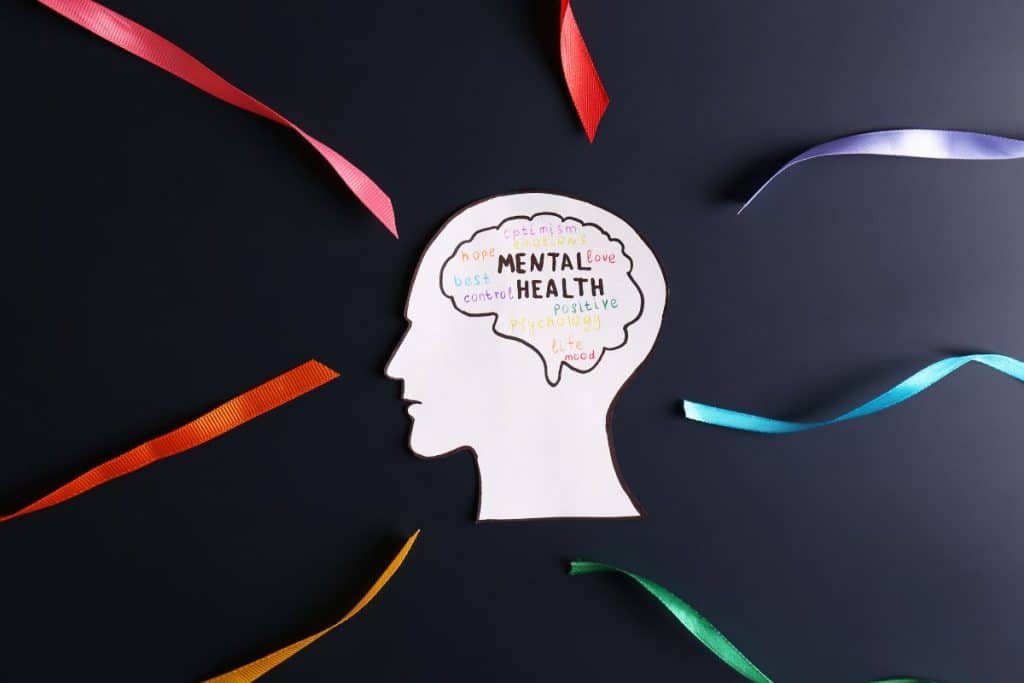As the importance of mental health awareness grows, it is becoming increasingly necessary to understand the signs and symptoms of a mental health disorder. Mental health disorders can be hard to recognize in yourself or in a loved one because they may not always be obvious and symptoms vary from disorder to disorder.
Because each disorder has their own symptoms, we’ve organized these by disorder and included some of their major symptoms. We will discuss how these symptoms can manifest themselves and why it is important to recognize them early on. With this knowledge, you can take proactive steps to ensure your own mental wellbeing or seek help for someone close to you who may be suffering from a disorder.
1. Depression
Depression is one of the most common mental health disorders. It can cause a range of symptoms, including:
- Feeling hopeless
- Loss of interest in activities
- Persistent feelings of sadness
- Changes in sleep or appetite
- Fatigue
- Thoughts of death of suicide
- Slowed thinking or speech
2. Anxiety Disorder
Anxiety is a normal emotion that we all experience at some point in our lives. However, for some people, anxiety can become so severe that it interferes with their daily lives. If you are experiencing any of the following symptoms on a regular basis, it may be time to seek help from a mental health professional:
- Excessive worry or fear that is out of proportion to the situation
- Avoiding activities or situations due to fear or anxiety
- Difficulty sleeping due to worry or anxious thoughts
- Difficulty concentrating or making decisions due to anxiety
- Physical symptoms such as sweating, trembling, or a racing heart
3. Bipolar Disorder

Bipolar disorder is a mental illness that causes extreme changes in mood. People with bipolar disorder may have periods of depression, followed by periods of mania. During a manic episode, a person may feel excessively happy and have a lot of energy. They may also take risks and make impulsive decisions.
Here are some signs that may indicate bipolar disorder:
- Extreme mood swings: A person with bipolar disorder may experience extreme mood swings, from highs (mania) to lows (depression). These changes in mood can be sudden and drastic, and they can last for long periods of time.
- Changes in sleep patterns: A person with bipolar disorder may have trouble sleeping or they may sleep too much. They may also have difficulty concentrating or making decisions.
- Changes in appetite: A person with bipolar disorder may lose their appetite or they may overeat. This can lead to weight gain or weight loss.
- Irritability: A person with bipolar disorder may feel unusually irritable or tense during certain periods of time. This can cause problems at home, work, or school, and it can make relationships difficult.
- impulsivity: A person with BPD can be impulsive and destructive.
4. Schizophrenia
Schizophrenia is a mental health disorder that can cause a range of symptoms, including:
- Hallucinations
- Delusions
- Disordered thinking.
The exact cause of schizophrenia is unknown, but it is thought to be caused by a combination of genetic and environmental factors. Early onset and family history are risk factors for developing the disorder.
5. Borderline Personality Disorder
One of the most common mental health disorders is Borderline Personality Disorder (BPD). BPD is a mental illness that is characterized by impulsivity, instability, and difficulty in regulating emotions. If you or someone you know exhibits any of the following signs, it may be indicative of BPD:
- Intense fear of abandonment
- Unstable or chaotic relationships
- Chronic feelings of emptiness or boredom
- Impulsive and risky behaviors (e.g., spending sprees, unsafe sex)
- Self-harming behaviors (e.g., cutting, burning)
- Extreme mood swings (e.g., happy one minute, sad the next)
- Difficulty controlling anger
- Transient periods of paranoid thinking or severe dissociation
A mental health professional can provide an accurate diagnosis and create a treatment plan that can address the symptoms of BPD.
6. Panic Disorder
A panic disorder is a type of anxiety disorder that causes repeated and sudden episodes of intense fear. These episodes can last for minutes or even hours, and can be so severe that they interfere with your daily activities. Panic disorder typically begins in adulthood (although it can occasionally begin in childhood or adolescence), and it is more common in women than in men.
Symptoms of a panic attack may include:
- Sudden feeling of apprehension or terror
- Pounding heart
- Sweating
- trembling or shaking
- Shortness of breath or tightness in your chest
- Chills or hot flashes
- Nausea or stomach pain
- Dizziness or lightheadedness
- Feeling of losing control or going crazy
7. Obsessive Compulsive Disorder
Obsessive Compulsive Disorder, or OCD, is a mental health disorder characterized by obsessions (recurrent, unwanted thoughts) and/or compulsions (repetitive behaviors or mental acts that a person feels compelled to do in order to ease their anxiety). People with OCD often have difficulty tolerating uncertainty and may feel the need to control their environment and the people in it.
The most common obsessions include:
- Fear of contamination (with dirt, germs, or toxins)
- Worries about harming oneself or others
- Needing everything to be symmetrical or perfect
- Repetitive intrusive thoughts about sex or religious topics
- And persistent doubts (e.g., “Did I turn off the oven?”)
Common compulsions include:
- Hand-washing and cleaning
- Repeated checking
- Ordering and arranging objects
- Counting
- Hoarding
- Hair pulling
- Skin picking
- And repeating actions a certain number of times or until they feel “just right.”
8. Post-Traumatic Stress Disorder

Post-traumatic stress disorder (PTSD) is a mental health disorder that can occur after a person has experienced or witnessed a traumatic event. Symptoms of PTSD can include:
- Flashbacks
- Nightmares
- Anxiety
- Depression
- And feeling constantly on edge
A diagnosis of PTSD can be made if these symptoms last for more than one month and significantly interfere with a person’s life.
9. Eating Disorders
There are many different types of eating disorders, but they all share one common symptom: an unhealthy relationship with food.
There are several warning signs and symptoms that may indicate someone has an eating disorder, including:
- Preoccupation with food, weight, and appearance
- Unhealthy or restrictive eating patterns
- Extreme weight loss or gain
- Obsessive exercise routines
- Disrupted menstrual cycle
- Irritability or mood swings
- Social withdrawal or isolation
10. Addiction
Addictions can be Mental Health Disorders— Not everyone who suffers from addiction has a mental health disorder, but many do. Addiction can be a symptom of mental health disorders such as depression, anxiety, and bipolar disorder. Signs and symptoms include:
- Lying
- Loss of interest in previous activities
- New groups of friends
- Tolerance to the drug
- Taking large doses
- Inability to stop, even when wanted to
- Trouble with the law
- Loss of productivity at work or school
- And more
Get Help For Addiction And Mental Disorders Today, And Get Free Once Again
Recognizing the signs of mental health disorders is key to getting proper help and treatment. If you or someone you know is experiencing any of these signs, it’s important to talk to a professional about how best to proceed with diagnosis and treatment.
Mental health disorders can be incredibly difficult for those affected by them, but support from friends and family members can make a huge difference in their lives. Remember that no one has to go through it alone; there are people who care and resources available if needed. Give us a call at (954) 302-4269 and we can help you through everything.

